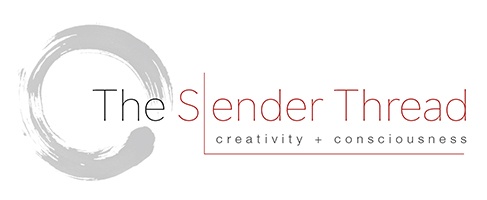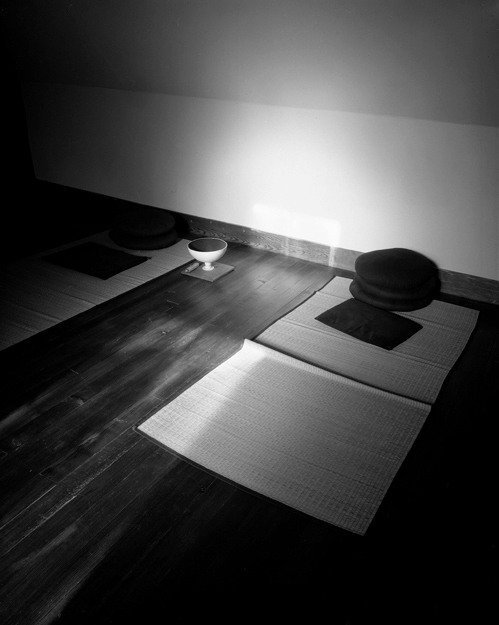I have had my dream—like others—
And it has come to nothing, so that
I remain now carelessly
With feet planted on the ground,
And look up at the sky—feeling my clothes about me,
The weight of my body in my shoes,
The rim of my hat, air passing in and out
At my nose–and decide to dream no more.
At the same time, we acknowledge the 50th anniversary of Martin Luther King’s march through Washington and his legendary speech, I Have a Dream. Clearly, we cannot equate the imaginary dreams that often govern our lives with King’s powerful words that imagine a world of social equality and justice where, “my four little children will one day live in a nation where they will not be judged by the color of their skin but by the content of their character.
I have a dream today!”
What is the difference between the illusionary dreams that hold us in bondage and dreaming the great dream that can change the very fabric of our lives and our society, giving meaning and focus to our future?
Perhaps William Carlos Williams refers to our constant state of daydreaming and imagining our lives, refusing to see and accept the reality of what is. In the poem, he enters the present by coming into contact with his body and the direct experience of the everpresent now, and foregoes the constant machinations of the mind and feelings that give false security. In these false dreams, we hide in our imagination where we are always right, and always turning away from the truth of what is. Gurdjieff calls this condition a state of waking sleep within which we live our lives, interact with others, and perform our actions, often in a state of disconnection to ourselves, removed from the facts and energies of this moment. We do not see clearly; we perceive through the veils of illusion. We dream our life.
Dr. King has a different kind of dream, of another order altogether. King employs the creative, imaginary part of the mind to create a new reality, to formulate an intent, an aim of social justice that does not currently exist. King visualizes what can be, indeed what should be, and offers a new condition, a new way of living that we can aspire to and someday actualize. King sees what is and rebels against the injustice and hypocrisy of present societal conditions. Indeed, in what has become known as the “kitchen table revelation,” Dr. King was uncertain about the direction he might take in the civil rights movement when he heard an inner voice that said unmistakably: “Martin Luther, stand up for righteousness. Stand up for justice. Stand up for truth. And so I will be with you, even until the end of the world.” Sometimes our insights come when we most need them and when we least expect them. This moment of insight helped formulate his great dream of justice and freedom for all.
We need to learn to see and distinguish between these two, radically different, sorts of dreams. What we think we know is often nothing more than a dream, and what we need to open to, to become, is often clouded in mystery. Some dreams are merely evasions from the present moment; other dreams are harbingers of truth, helping us occupy the more essential, living parts of the self. Here is a recent piece of writing by Laura after returning from a spiritual retreat this summer that relates to the seeing that is needed to discriminate our inner conditions.
__________________________________
“I am learning to see. I don’t know why it is, but everything enters me more deeply and doesn’t stop where it used to. I have an interior that I never knew of. Everything passes into it now. I don’t know what happens there.”
—Rainer Maria Rilke
Each turn of my spiritual work has left me in a state far from where I thought it would have. I came from a place of assuredness—believing in my own rightness and righteousness, and despite my propensity for knowing it all—again and again, I have found myself in the realm of the unknown. As time presses on, I have become further immersed in the interminable mystery of who I am. Each time a new layer is exposed, I think I come to know it, and once more, it is stripped away to reveal something else, new and mysterious. Perhaps this is why or how the love affair with inner awakening never ends. Probing into deeper and deeper layers of self, this romance stays vibrant. Unknown, the world is vital and alive. Yet, the moment I think I know something, it is dead to me.
I so quickly forget that, regardless of wherever I may be, I am here. In silence, away from the fast-moving animation of life, I am reminded that regardless of wherever I may be, I am most often not here. So much time is spent elsewhere—distracted by the world and pulled away by my own thoughts displaced from the here and now. I notice that it isn’t the world that is problematic, but my own lack of awareness. How do I use the world, but as a means to escape seeing myself as I am? Whether on retreat or in the hustle and bustle of life, I am given constant reminders to reawaken. Often, I ignore these impulses—I make phone calls, turn on the computer, read a book, maybe have a snack—regardless of what it is, most activities are ploys at evasion. I do not want to see.
But in times of silence, quiet work, and sitting, what is there to “do”? Every condition that has been set returns the current of perception back inward. I must see myself, but how I resist it! The mind, shrewd as it is, plays its games—creating scenarios and schemes to justify my own lack of inner resolve and awareness. The mind moves faster and faster as life around me moves slower and slower. Energy dissipates through this constant whirlwind of thought. Sleep is inadequate. The body is too tired to sit and be attentive at the same time, so it simply sits, dull, tired, and defeated. “I give up,” says the body. “I give up,” says the mind.
The emotions rise, now that the body and mind have revealed their ineptitude. There is anger, frustration and irritation. A deep fire is kindled inside, with no water to dampen the heat. But even emotions have their life span—fire turns to smoke, smoke to steam, steam to rain, and rain eventually makes its way back into the depths of the ocean floor.
There is a small crack through which I see. The outside world is silent. The shell of my self has surrendered, even if only for a moment. I see a sliver through the crevice—the light reflects upon a mirror within my small space. The noonday sun stings eyes just now open after many moons of sleep. Tears come to moisten the dryness of new sight, so that one might see more clearly over time. The image upon the mirror is simple, yet surprisingly unfamiliar. Just line, color, and shape, animated by light. Delusions of grandeur have softened. Is this it? Is this all that I am? So simple and unworthy of my own all too frequent justifications.
The heart expands in its tiny cavern, creating a sense of tightness in the chest. Energy slowly returns. Thoughts trickle back, but in a somewhat new direction. For a moment, the habitual need to either justify or condemn a constructed identity has been arrested. Here, looking within, an unknown Self looks back through the mirror of awareness. I do not know this Self, but it knows me. To this unknown Self, I feel great remorse. How is it that I have continued to turn away from you and kept you hidden from all to see?
There are people who have offered us so much, and from whom we have taken what was given. I see now my unworthiness of these gifts. And in seeing this, a wellspring of heartfelt gratitude emerges. How great is my appreciation toward those that have in good faith believed in the Self that I have not yet seen with my own eyes. To what do I owe the ones who have cared for and loved this unknown Self, so plain, innocent, and untouched by life’s myriad impressions?
Now, the question is:
How to come back?
How to return
the favor.
_____________________
Which dream will it be: the illusion of knowing, or the aim of opening to the mysteries of truth?


